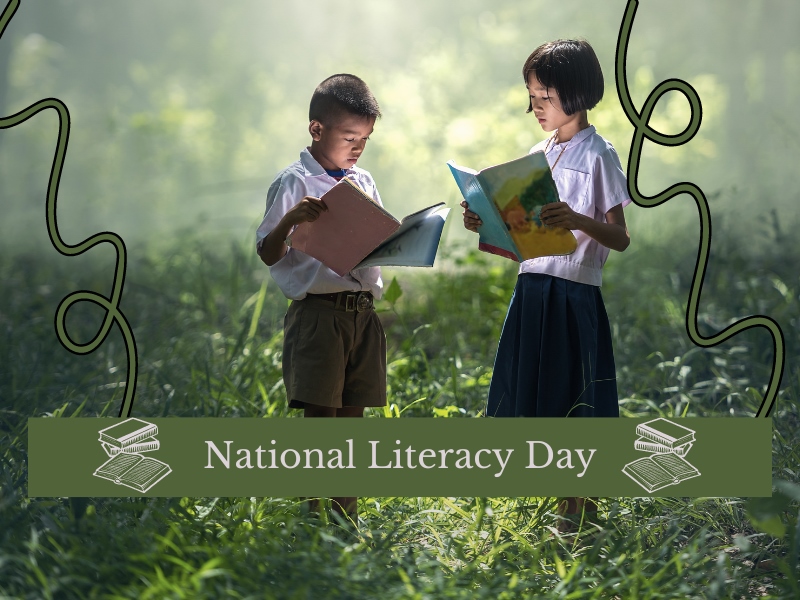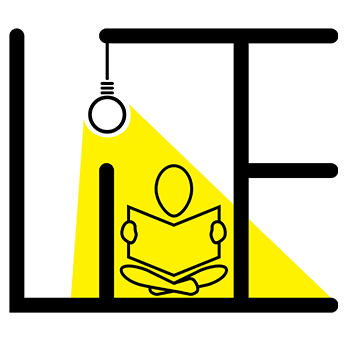Every year, India observes National Literacy Day on September 8th. This day holds a special significance as it commemorates the birth anniversary of Maulana Abul Kalam Azad. Maulana Azad, a prominent freedom fighter, was not only a visionary leader but also a passionate advocate for education and literacy. In honour of his invaluable contributions to the nation and his unwavering belief in the transformative power of education, September 8th was designated as National Literacy Day in India.
This auspicious day serves as a reminder of the importance of literacy in driving social, economic, and cultural development. It provides an opportunity to reflect upon the progress made in enhancing literacy rates across the nation, as well as to acknowledge the relentless efforts of individuals, communities, and organizations in eradicating illiteracy. National Literacy Day is a call to renew our commitment to empowering individuals through education and to further promote the value of literacy in building a prosperous and inclusive society.
On this significant day, individuals, communities, and organizations actively organize various activities, campaigns, and events throughout the country to create awareness about the importance of literacy. These initiatives aim to mobilize individuals, communities, and institutions to actively contribute towards achieving universal literacy. It is a day to celebrate the transformative power of education, inspire others to pursue knowledge and ensure that every individual has access to quality education and lifelong learning opportunities.
Significance of National Literacy Day
National Literacy Day in India symbolizes a collective endeavour to break the chains of illiteracy and open the doors of opportunity for all. It is a time to reflect on the achievements made in the field of education, but also a reminder of the work that still lies ahead. By embracing the vision of Maulana Azad and dedicating ourselves to the cause of literacy, we can build a stronger, more empowered society where every individual has the chance to thrive and contribute meaningfully.
As we observe National Literacy Day, let us rededicate ourselves to the pursuit of education, the eradication of illiteracy, and the empowerment of every individual through the gift of literacy. Together, we can create a nation where knowledge knows no bounds and the power of education illuminates the path towards a brighter future.
The Importance of Literacy
Literacy forms the foundation of personal and societal growth, empowering individuals to lead fulfilling lives and contribute to the progress of their communities. By equipping individuals with the ability to read, write, and comprehend information, literacy enhances critical thinking, expands knowledge, and opens doors to opportunities.
The Journey to Achieving Universal Literacy
India, with its diverse population and vast geographical expanse, faces unique challenges in achieving universal literacy. The government, along with various organizations and initiatives, has been instrumental in driving efforts to increase literacy rates, particularly among marginalized and underprivileged communities.
Government Initiatives: A Catalyst for Change
The Government of India plays a pivotal role in promoting literacy and education through a range of initiatives. These initiatives, including the National Literacy Mission, Sarva Shiksha Abhiyan, and the Right to Education Act, have been catalysts for positive change. They have contributed to increasing literacy rates, narrowing educational disparities, and ensuring access to quality education for all. Through these programs, the government has demonstrated its commitment to creating an inclusive and equitable educational landscape, empowering individuals with the tools and opportunities needed to thrive.
Community-driven Approach: Empowering Grassroots Efforts
In addition to government initiatives, community-driven efforts have emerged as powerful agents of change in promoting literacy. Non-profit organizations, local community centres, and dedicated volunteers have taken the initiative to raise awareness about the importance of literacy and have actively contributed to grassroots efforts. Through initiatives such as literacy camps, educational resources distribution, and mentorship programs, these community-driven endeavours have empowered individuals, especially those from underserved populations, to access education and develop crucial literacy skills. By fostering a sense of ownership and collaboration, these efforts have effectively strengthened the fabric of literacy promotion at the community level, creating a ripple effect that positively impacts individuals and society as a whole.
The Role of Technology in Literacy Enhancement
Technology plays a pivotal role in enhancing literacy by revolutionizing the way education is accessed and delivered. Digital platforms, mobile applications, and e-learning resources have become invaluable tools in expanding access to education, particularly in remote and underserved areas. These technological advancements have facilitated interactive and personalized learning experiences, making education more engaging and effective. Through online courses, multimedia content, and digital libraries, learners of all ages can develop their literacy skills at their own pace and according to their specific needs. Technology has transformed the educational landscape, empowering individuals to acquire and refine literacy skills in innovative and accessible ways, ultimately promoting lifelong learning and a more inclusive society.
Fostering a Culture of Lifelong Learning
National Literacy Day serves as a reminder of the significance of lifelong learning in today’s rapidly changing world. It underscores the importance of continuous education and skill development beyond basic literacy. Lifelong learning equips individuals with the knowledge and competencies necessary to adapt to new technologies, navigate complex challenges, and seize opportunities. It promotes personal growth, empowers individuals to enhance their employability, and cultivates a sense of curiosity and intellectual engagement. By fostering a culture of lifelong learning, we create a society that values education, embraces intellectual curiosity, and thrives in the face of change.
Conclusion
National Literacy Day in India serves as a powerful reminder of our unwavering commitment to eradicate illiteracy, promote education, and empower individuals through the gift of literacy. It is a celebration of the progress made and a recognition of the collective efforts invested by individuals, communities, and organizations in creating a more literate and inclusive society. This significant day calls upon us to reflect on the transformative power of education and renew our dedication to promoting literacy and ensuring quality education for all. As we unite in this common goal, let us build a brighter future, where every individual has access to the invaluable tool of knowledge, unlocking endless opportunities and empowering generations to come.

